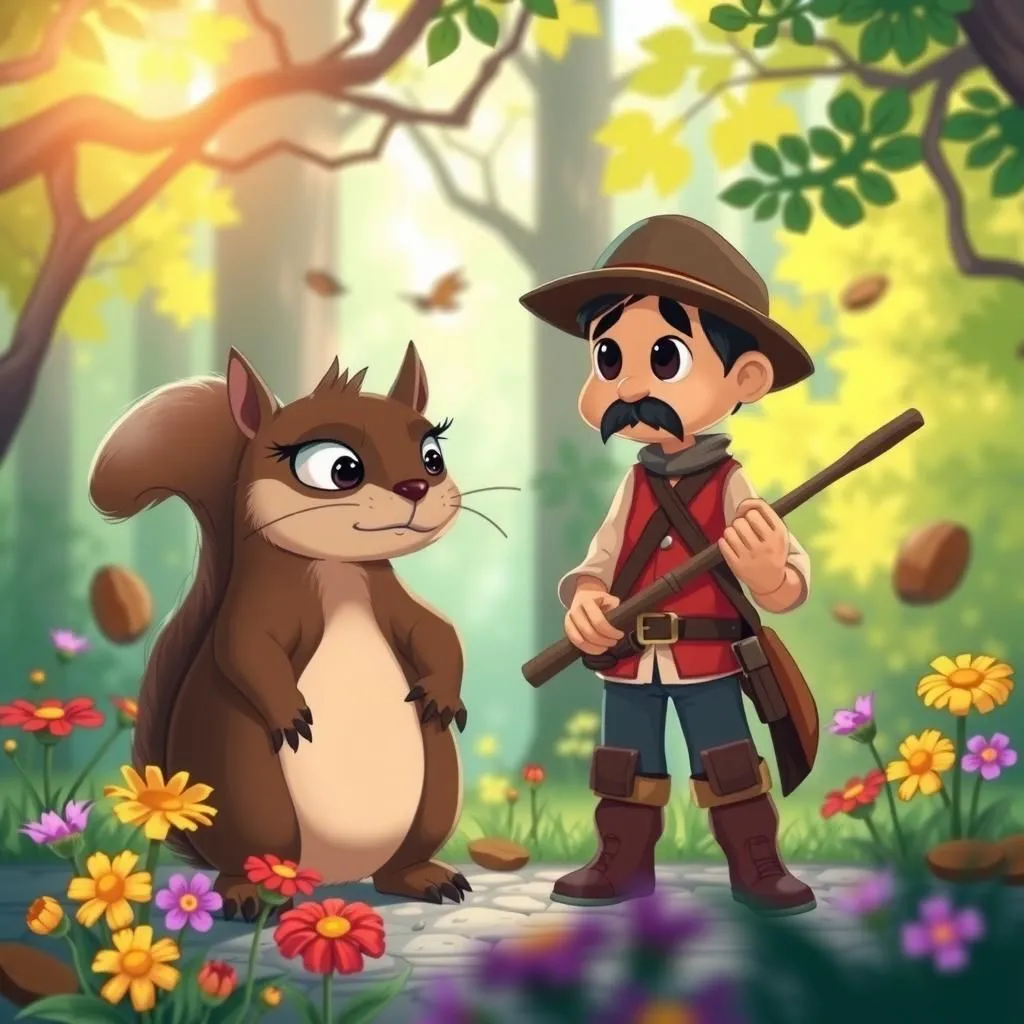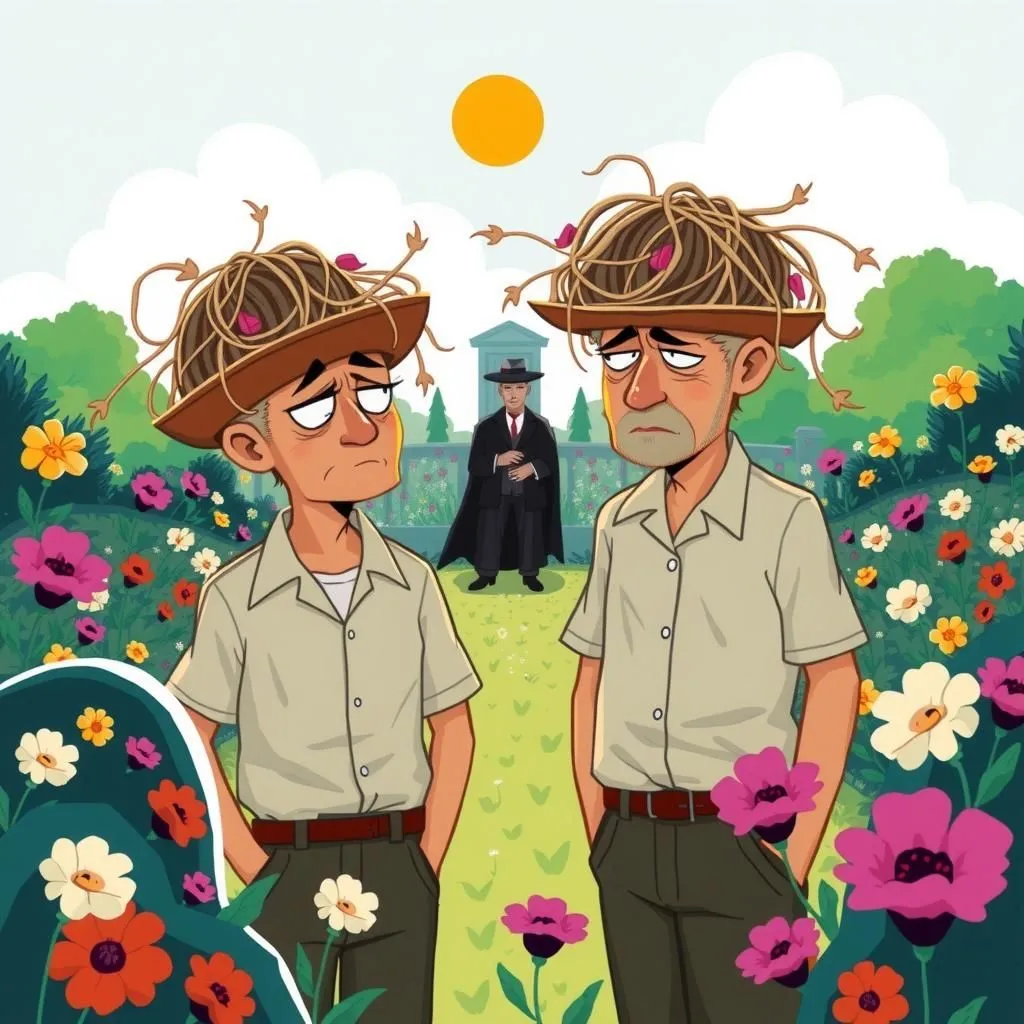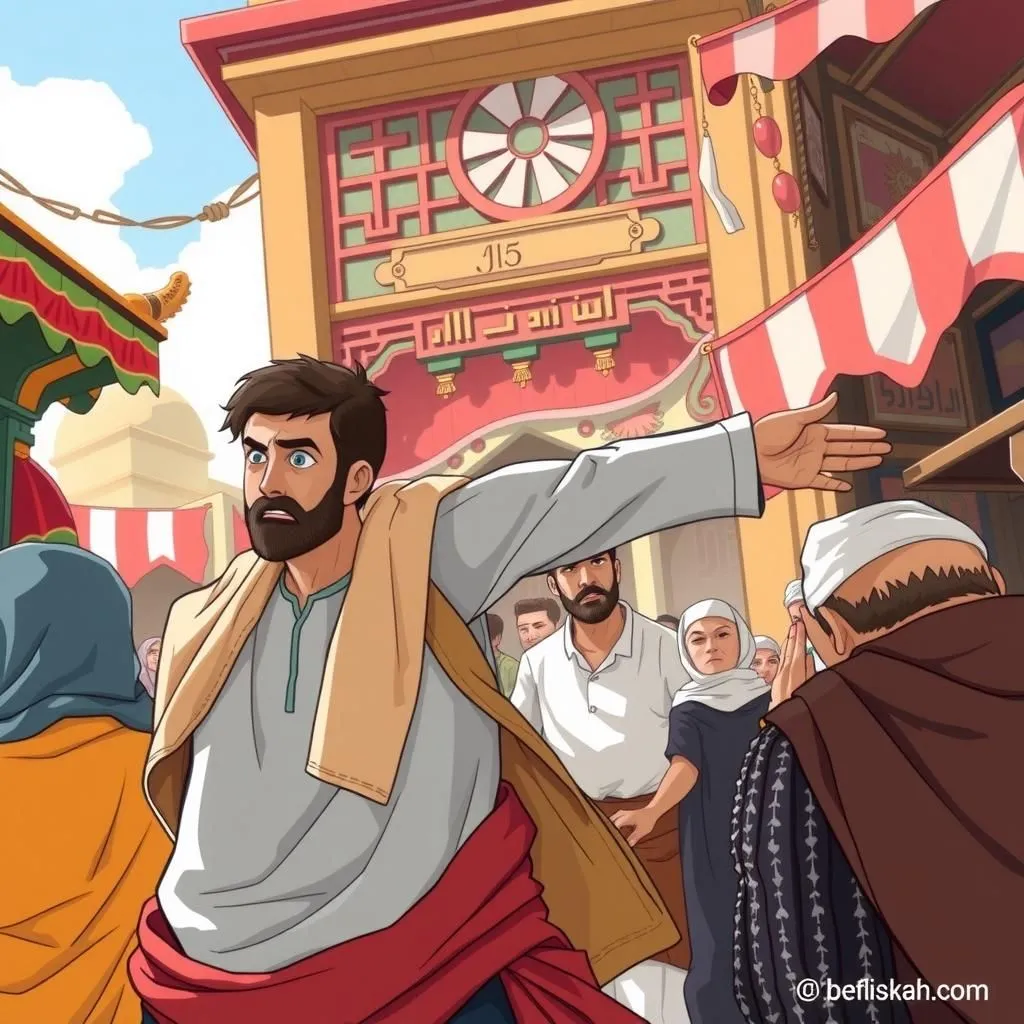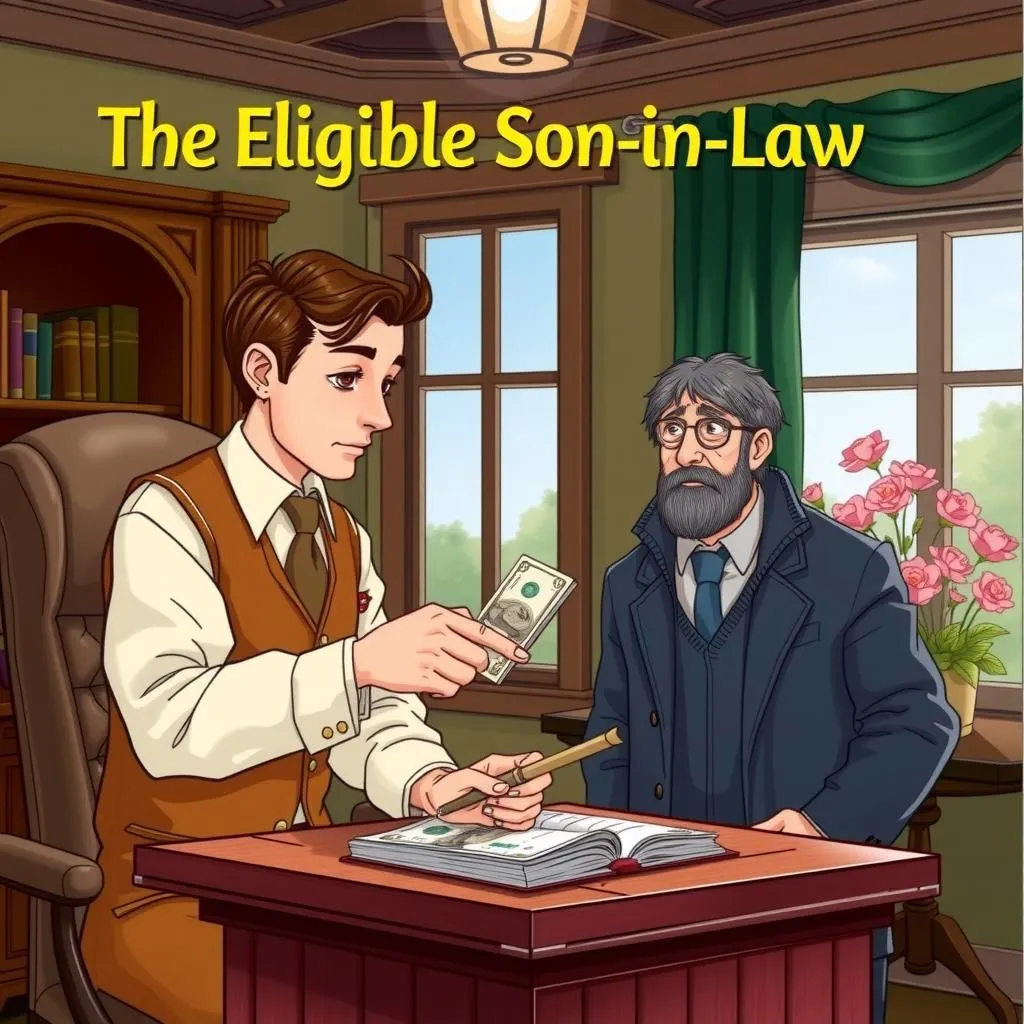
The Sportsman and the Squirrel
In this wisdom-packed moral story, a Sportsman, after wounding a Squirrel, chases it with a stick, claiming he wishes to end its suffering. The Squirrel, defiantly revealing the hypocrisy of the Sportsman's actions, asserts its desire to survive despite its pain. Overcome with shame, the Sportsman ultimately refrains from harming the Squirrel and walks away, highlighting the value-based moral that true compassion must align with understanding and respect for life.


